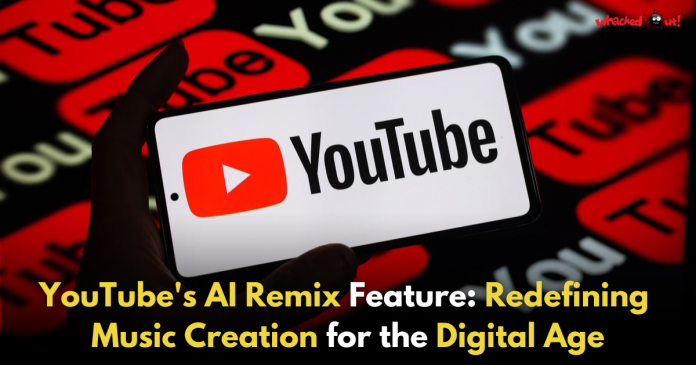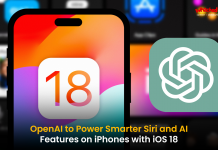In a groundbreaking move, YouTube is testing a new feature that enables users to create AI-generated remixes of songs. Known for pioneering user engagement and innovative content features, YouTube is taking its platform a step further by exploring artificial intelligence to transform how music is produced, shared, and enjoyed. This new feature holds potential not only for record labels but also for music producers, creators, and fans.
AI’s Role in Revolutionizing Music Production
Artificial intelligence has made a significant impact across various creative industries, and music is no exception. AI-driven tools are already assisting in music composition, analyzing existing tracks, and generating new versions. Companies like Jukedeck and Amper Music have demonstrated how AI can speed up and enhance the music creation process. These tools analyze and extract elements like vocals, basslines, and melodies, which can then be rearranged or modified to create unique remixes. YouTube’s AI remix feature brings these capabilities directly onto its platform, simplifying access to music production tools for all users.
Existing AI Tools in Music Production
Several AI tools are currently making waves in the music industry:
- Magenta Studio: Developed by Google, this tool leverages machine learning techniques for music generation and can be used as a plugin for popular digital audio workstations.
- LALAL.AI: This tool uses advanced algorithms to extract vocals and instruments from audio files, providing greater flexibility during the production process.
- AIVA: An AI composer specializing in creating emotional soundtracks for various applications.
These tools highlight the growing trend of integrating AI into music production, making it more accessible to creators at all levels.
New Capabilities of YouTube’s AI Remix Feature
Currently in testing, the AI remix feature allows YouTube users to upload a song and experiment with various alterations. YouTube’s AI can dissect the song’s components and enable users to tweak specific elements of the track, such as its tempo, tone, or instrumentation. This removes the need for specialized software, making remixing accessible to anyone, regardless of their technical skills.
User-Friendly Interface
The design of the remix feature aims to be intuitive:
- Users can easily upload songs from their library.
- The interface will allow for simple adjustments to different aspects of the track.
- Users can save and share their remixes directly on the platform.
Why YouTube is Exploring AI Remixes
There are several possible motivations behind YouTube’s interest in this feature:
- Boosting User Engagement: Adding a new layer of interactivity could enhance user retention on the platform.
- Simplifying Remixing: This feature would streamline the remixing process, allowing users to customize songs easily without needing advanced production tools.
- Competitive Edge: By offering innovative tools, YouTube could solidify its position as a leading content platform amid competition from other social media sites.
Community Building
The ability to remix songs could foster a stronger sense of community among users. Fans may engage more deeply with their favorite artists by creating personalized versions of songs, enhancing promotion and popularity.
Empowering Music Creators and Fans
YouTube’s AI remix feature could empower a broader range of users to explore music creation. Aspiring producers and fans could experiment with remixing their favorite songs without needing costly software or technical expertise. Additionally, this feature introduces an innovative form of fan art, allowing fans to create remixes that reflect their personal take on a song.
Ownership and Rights
While fans can contribute creatively through remixes, artists retain ownership of their original work. This dynamic allows for creative expression while ensuring that artists are acknowledged for their contributions.
The Future of AI and Music on YouTube
As YouTube continues to develop AI-driven tools, the possibilities for creative expression on the platform expand. From AI-assisted remixes to potentially AI-generated music videos, the lines between traditional and digital artistry could blur even further.
Legal Considerations
However, YouTube will need to carefully consider the legal and ethical aspects of AI-generated content to ensure artist rights are protected alongside creative innovation. Addressing copyright issues will be crucial as user-generated content becomes more prevalent.
Conclusion
YouTube’s testing of an AI remix feature offers an exciting glimpse into the future of music production and content interaction. By democratizing creativity through technology, YouTube is positioning itself as a platform where fans can engage more deeply with music while providing artists with innovative ways to connect with their audience.
As this feature develops further, it could reshape how users interact with music on digital platforms, blending traditional artistry with cutting-edge technology in unprecedented ways.




